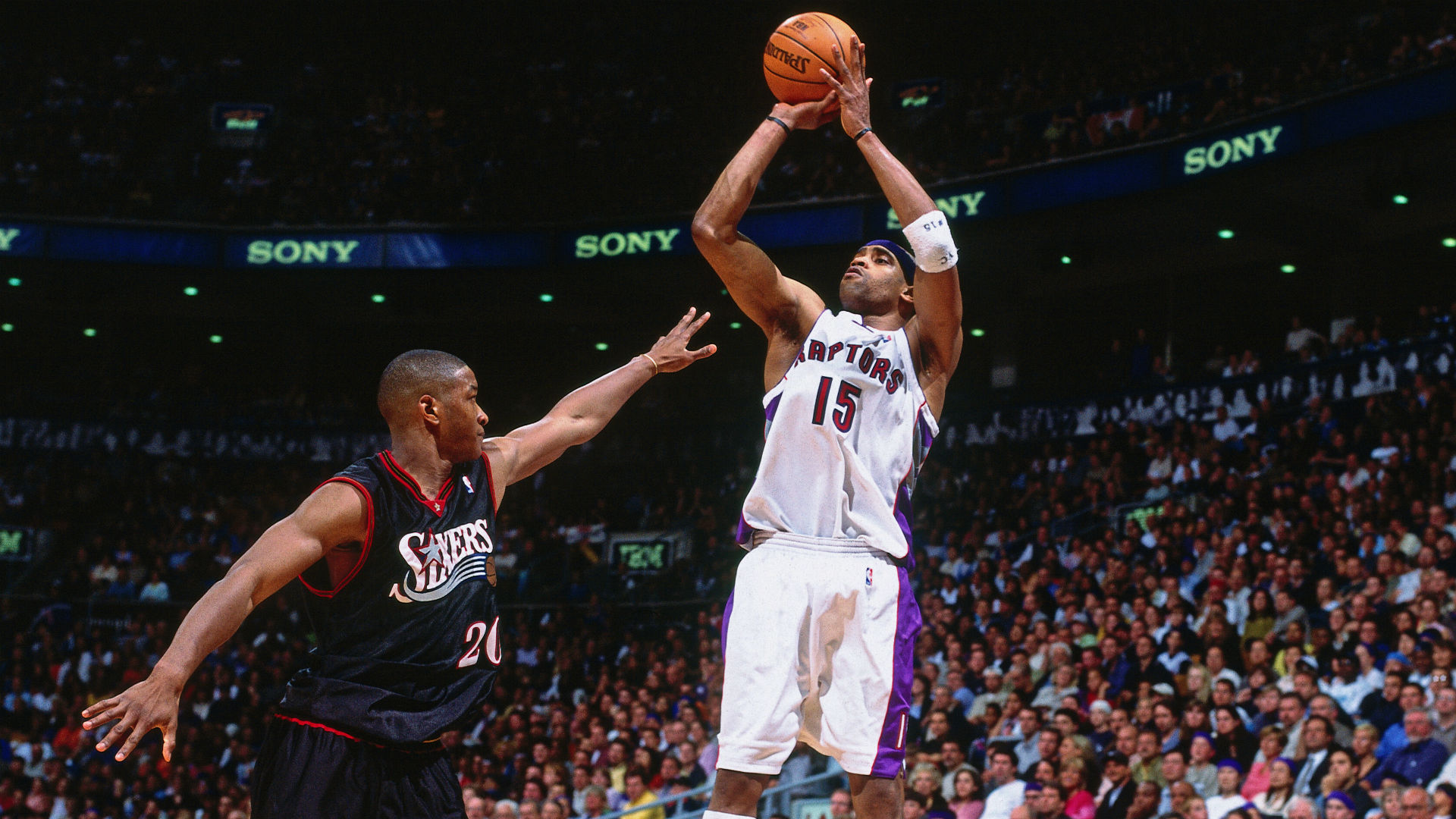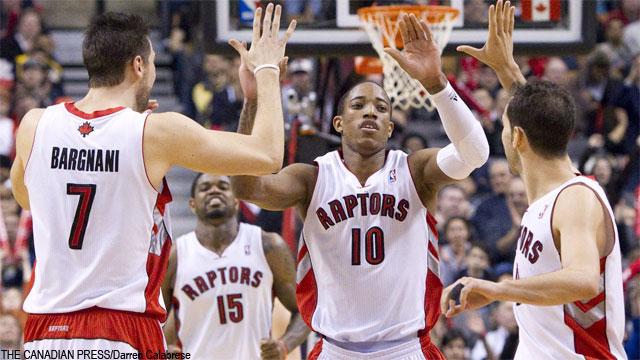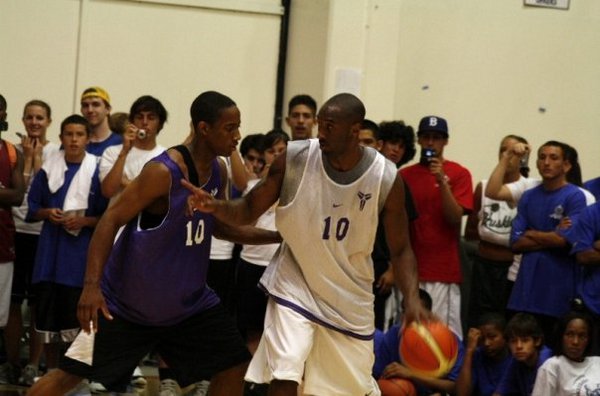The end of a story is always bittersweet. There’s always relief at the ability to finally see something in its entirety. There’s sadness that something is done. And there’s joy in the ability to have heard the tale at all. Today, Vince Carter announced his retirement from the NBA. He was always an emotional player, and it’s fitting that there should be a vortex of emotions swirling around the end of his career, especially for basketball fans living in Toronto.
Vince Carter was the first and brightest star in Canadian basketball. The Toronto Raptors weren’t a failure before Carter, but they weren’t exactly a success story, either. Attendance was middling, 16th in the league before Carter was drafted. But Carter was a show unto himself.
There will never be another thrill on the basketball court like the one that came when Carter jumped. He dunked like a caterpillar evolving into a butterfly, crouching and containing all his massive force at one small point before exploding and leaping and swinging his arms and legs in all directions like a thresher. He did things in midair that no NBA player has done since. Carter will go down as the greatest in-game dunker in the history of the NBA. Sometimes his force would surprise him, and he’d throw his head back at the last moment, flinching at the raw power contained in his own show. No, there is nothing like a Carter dunk.
Then came the 2000 slam dunk contest, in which Carter ended the competition long before the final dunk. That summer, he launched himself over 7-foot Frederic Weis at the Olympics, spawning both the greatest dunk of all time and the coolest dunk name: le dunk de la mort. The dunk of death.
Carter led the league in all-star voting in 2000, 2001, and 2002. Carter’s peak was momentous, and in the grand scheme, it was long. He was the King in the North long before Kawhi Leonard. Carter hung at the top, head floating near the rim, shoulders and torso high above his competitors. Basketball arrived in Canada for the first time since James Naismith invented the game south of the border. Carter flew to heights previously uncharted. But all dunks end, and Carter’s fall from grace was swift and ugly.
In 2001, Carter missed a jumper in game seven against the Philadelphia 76ers in the Eastern Conference Semi-Final. He had attended his own college graduation earlier in the day, and his legs were shot from a long season. The Raptors lost, and they wouldn’t return to such heights until the heyday of Kyle Lowry and DeMar DeRozan, then Lowry and Kawhi Leonard. Leonard hit the identical shot, but a mirror image, in game seven against the 76ers in the 2019 Eastern Conference Semi-Final, and if there was ever such a thing as a Carter curse, Leonard broke it, and the Raptors won the championship.
But that took almost two decades. For much of those two decades, the Raptors were a broken franchise because of Carter’s graceless exit. He stopped trying, stopped passing, stopped wanting to play at all in Toronto. In 2004 he was traded to the New Jersey Nets for Alonzo Mourning, who refused to report to Toronto. Carter trashed the Canadian franchise on the way out the door, and boos showered him for years whenever he stopped onto the floor of Air Canada Center. Carter was a villain for longer than he was a hero.
Then in 2014, the nightmare abruptly ended. In hindsight, it was inevitable that a man who changed as much as Carter would change again. Emotions are never stable for long. The Raptors faced the Memphis Grizzlies in Toronto, and a tribute video brought the fans to their feet. For the first time since Carter was a Raptor, he enjoyed applause in Toronto. Carter wept openly, lifting his hand to the crowd, appreciating the moment as a bookend to his Toronto tenure. Forgiveness meant everything to him. Just like a dunk, the fall may be quick, and it can hurt some knees, but when all is said and done, all you remember is the peak, the head impossibly above the rim. Toronto forgave Carter and chose instead to focus on the years of plenty. And for a time they were wonderful.
Of course, one night of cheers, and the subsequent applause every time Carter returned to Toronto, do not erase a decade of loathing. But they do act as counterweights. Carter was not perfect in Toronto. And the divorce was as acrimonious as divorces get in the world of sports. But Toronto came to eventually appreciate Carter again. And now that the Raptors exist at the peak of the NBA universe, such things as regret and resentment seem petty in hindsight.
Carter put Toronto on the basketball map. He’s a complex figure, and he will be remembered in complex ways. But now that he’s gone, we can look at his career in its entirety. It was joyous and maddening and breath-taking and infuriating. Sometimes, all at once. Carter played in the NBA for longer than any other player in history. For all his change, from impetuous rookie to megastar to villain to old head, Carter himself remained a fixture in the NBA. Now he’s gone, he leaves a hole behind that cannot be filled by anyone. Love him or hate him, and probably both at once, there never has nor ever will be anyone like Vince Carter.



